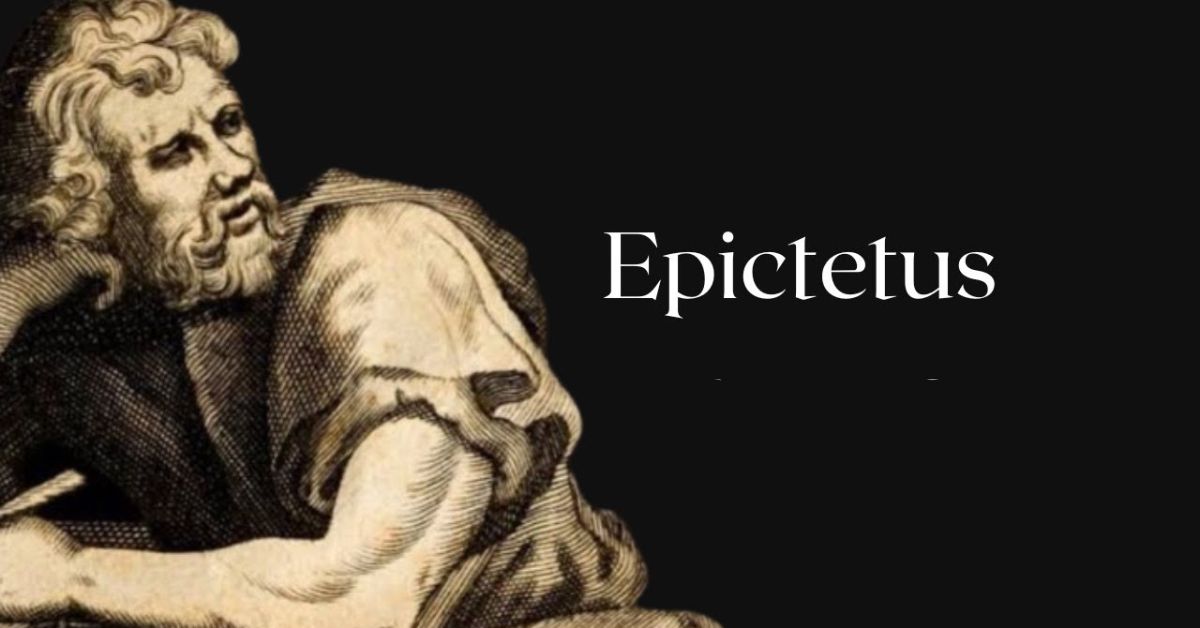
How to Read Epictetus's Books on Freedom
How to Read Epictetus's Works on Freedom
Estimated Reading Time: 10-12 minutes
Introduction
Epictetus, a prominent Stoic philosopher of the first century AD, offers profound insights into the concept of freedom that resonate with readers even today. Born into slavery in Phrygia, he eventually gained his freedom and became a respected teacher in Rome. His life experiences profoundly shaped his understanding of freedom—not merely as a physical state but as a mental and emotional condition. This perspective is particularly valuable in our contemporary society, where the notion of freedom often gets tangled in political and social discourse.
Epictetus's teachings, primarily preserved through his student Arrian in the "Discourses," emphasize that true freedom lies in our ability to control our thoughts, reactions, and desires. This unique approach positions him as a pivotal figure in the exploration of personal autonomy and moral responsibility, making his work essential for anyone seeking to understand the deeper dimensions of freedom.
Why Epictetus's Perspective Matters
Epictetus's philosophy distinguishes itself through its emphasis on inner freedom. Unlike many thinkers who focus on external circumstances, Epictetus teaches that our responses to events are what truly determine our freedom. His assertion that "it is not what happens to you, but how you react to it that matters" encapsulates his belief that freedom is rooted in our mindset rather than our circumstances.
This perspective is particularly significant in a world where individuals often feel trapped by external conditions. By advocating for the mastery of one's internal state, Epictetus offers a practical approach to achieving freedom that transcends time and cultural boundaries. His ideas have influenced countless thinkers, from early Christian theologians to modern psychologists, underlining the lasting impact of his work.
Overview of Recommended Books
Discourses
The "Discourses" of Epictetus is a collection of teachings that delve into various aspects of Stoic philosophy, with a significant focus on the theme of freedom. The work is structured as a series of dialogues, allowing readers to engage with Epictetus's thoughts in a conversational manner.
Main Themes and Arguments
-
The Dichotomy of Control: One of the central themes is the distinction between what is within our control and what is not. Epictetus argues that true freedom comes from recognizing this dichotomy and focusing our efforts on what we can influence—our thoughts, beliefs, and reactions.
-
The Role of Desire and Aversion: Epictetus emphasizes that our desires and aversions can enslave us. By learning to align our desires with reality and to accept what we cannot change, we can achieve a state of inner peace and freedom.
-
Moral Responsibility: The "Discourses" also explore the idea that freedom is linked to moral responsibility. Epictetus insists that we are responsible for our judgments and actions, thus empowering us to pursue a virtuous life.
Historical Context and Significance
Written during a time when the Roman Empire was at its height, the "Discourses" reflect the cultural and philosophical milieu of Stoicism, which sought to provide individuals with tools to navigate the complexities of life. Epictetus's teachings were revolutionary in their focus on personal agency and ethical living, making them relevant not only in his time but also in contemporary discussions about freedom and autonomy.
Key Insights and Takeaways
- Inner Freedom: True freedom is achieved by mastering one's thoughts and emotions rather than seeking external validation or control.
- Acceptance: Learning to accept what we cannot change is crucial for maintaining peace and freedom.
- Personal Responsibility: We must take responsibility for our reactions and choices, as they define our character and freedom.
Why Read This Book:
The "Discourses" is essential reading for anyone interested in understanding the philosophical underpinnings of freedom. It provides a unique contribution by framing freedom as an internal state rather than a mere external condition. Students of philosophy, individuals seeking personal growth, and anyone grappling with issues of control and acceptance will find profound insights in Epictetus's work.
Key Themes and Sections
Epictetus's "Discourses" can be analyzed through several key themes that build upon one another to provide a comprehensive understanding of freedom:
-
Understanding Control: The initial sections introduce the concept of the dichotomy of control, setting the foundation for the rest of the work. This theme is crucial as it lays the groundwork for understanding how to achieve freedom through mental discipline.
-
Desire and Acceptance: Subsequent sections delve into the nature of desire and aversion, illustrating how these emotions can lead to suffering if not managed properly. Epictetus encourages readers to cultivate desires that align with virtue and to accept the limitations of their circumstances.
-
Moral Agency: The later sections emphasize moral responsibility, urging readers to recognize their role in shaping their character and destiny. This progression reinforces the idea that freedom is not just about external conditions but about internal choices.
-
Practical Applications: Throughout the "Discourses," Epictetus provides practical advice and exercises for readers to apply Stoic principles in their daily lives, making the philosophy accessible and actionable.
Who Would Benefit from Reading These Books
The "Discourses" is a treasure trove for a diverse audience:
- Students and Academics: Those studying philosophy will appreciate the depth and clarity of Epictetus's arguments, providing a solid foundation for understanding Stoicism.
- General Readers Interested in Freedom: Anyone curious about the nature of freedom and personal autonomy will find valuable insights that challenge conventional notions.
- Professionals Seeking Practical Wisdom: Individuals in high-stress environments can benefit from Epictetus's teachings on emotional control and resilience.
- Anyone Looking for Personal Growth: Those on a journey of self-improvement will find actionable strategies for cultivating inner peace and freedom.
Recommended Reading Order
To maximize your understanding of the "Discourses," consider the following reading approach:
- Begin with: The introduction and the first few dialogues - These sections establish the fundamental concepts of control and freedom.
- Focus on: The dialogues discussing desire and aversion - Understanding these themes will deepen your grasp of how emotional management contributes to freedom.
- Advanced study: The later dialogues on moral responsibility and practical applications - These sections provide a comprehensive view of how to live a life aligned with Stoic principles.
Tips for Getting the Most Out of This Foundational Work:
- Take notes on key concepts and reflect on how they apply to your life.
- Engage with the text by asking questions and considering counterarguments.
- Discuss your insights with others to deepen your understanding.
Conclusion
Epictetus's contributions to the theme of freedom are both profound and timeless. His teachings invite us to reconsider what it means to be truly free, emphasizing that our internal state is the key to liberation. As you explore the "Discourses," you will uncover practical wisdom that can transform your understanding of freedom and empower you to live a more intentional life.
I encourage you to delve into Epictetus's work, reflect on its teachings, and apply them to your own journey. The insights you gain will not only enhance your understanding of freedom but also equip you with the tools to navigate life's challenges with grace and resilience.
Featured Books

Discourses
by Epictetus
Published: 135
A new translation of the influential teachings of the great Stoic philosopherDespite being born into slavery, Greco-Roman philosopher Epictetus became one of the most influential thinkers of his time. Discourses and Selected Writings is a transcribed collection of informal lectures given by the philosopher around AD 108. A gateway into the life and mind of a great intellectual, it is also an important example of the usage of Koine or “common” Greek, an ancestor to Standard Modern Greek.